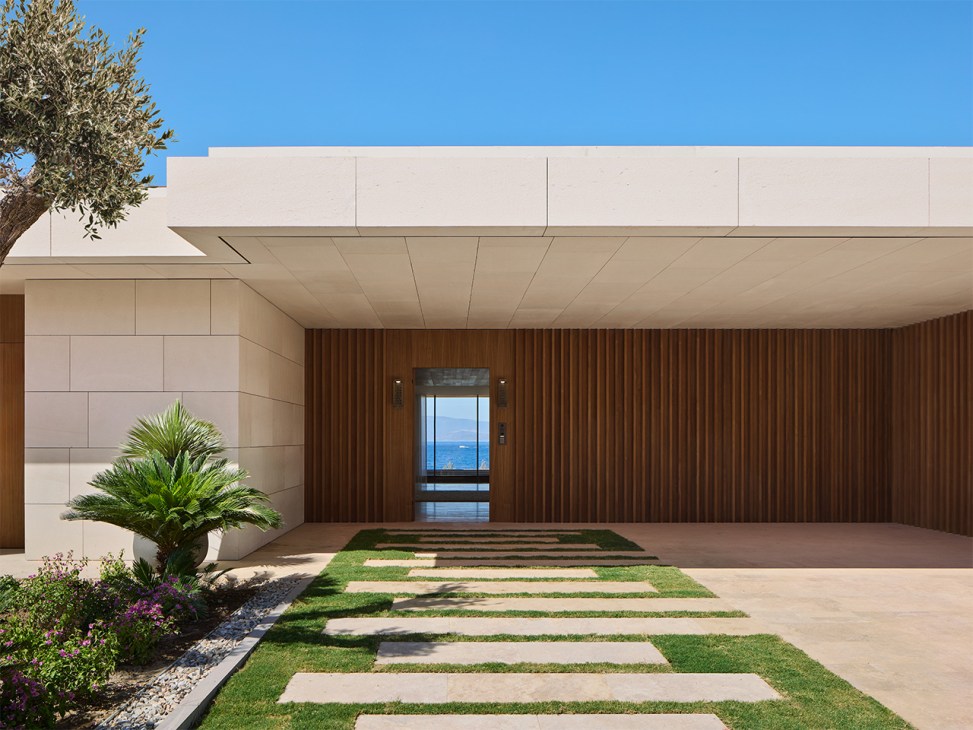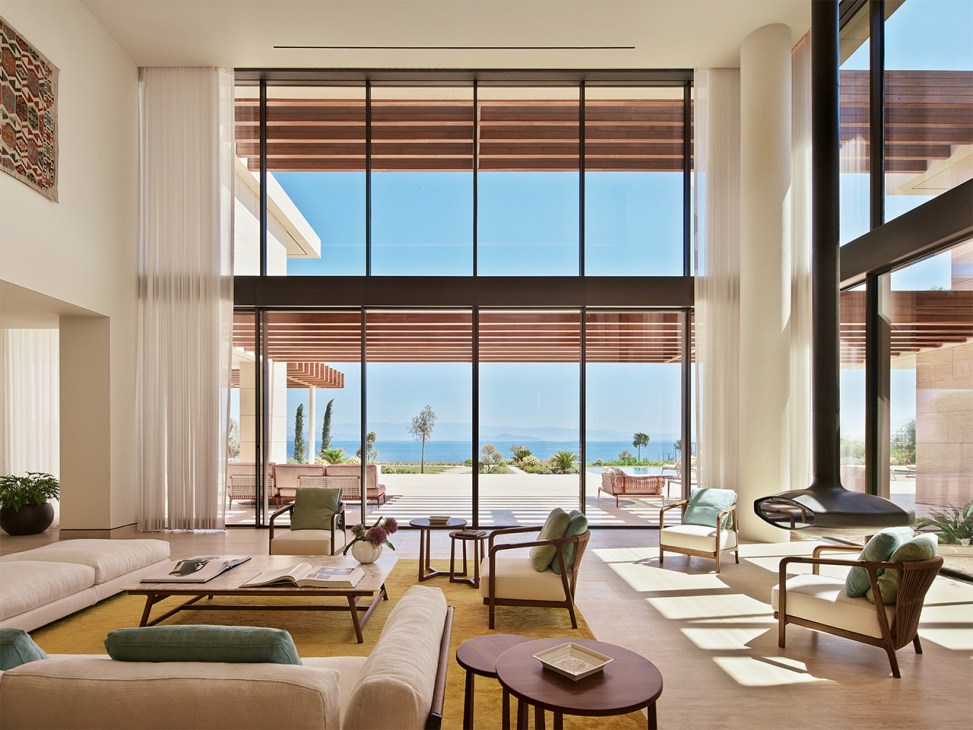Bulgari bets on Bodrum: Inside the jewellery house’s vast luxury residence in Turkey
Italian luxury brand Bulgari is bringing its eye for detail to the Aegean, offering Monocle a preview of its newest chapter in design-led hospitality and discreet luxury living.
Jewellery brand Bulgari is carving out an unexpected foothold in the hospitality space. Its expansion into the world of hotels and resorts is, according to the Bulgari’s executive vice-president, Silvio Ursini, an extension of the company’s expertise in seeking out the exquisite, whether it be diamonds or properties. Now, the Roman house is setting its sights on Bodrum, where a collection of 100 private residences and a hotel resort is currently under construction and set to open in 2027.

“Perhaps the fact that we’re not hungry for success is the reason for our success,” says Ursini when Monocle meets him for coffee in Bodrum’s Macakizi Hotel overlooking the Aegean Sea. “If [opportunity] comes, it comes. If it doesn’t, no problem” Ursini adds, his tan and sunglasses embodying a certain Mediterranean ease. “No rush – just patience and consistency. Many luxury brands are under pressure to grow but we actually find that the less we do, the happier we are.”
That nonchalance masks a record of steady expansion and considerable achievements. Since joining in 1989, Ursini has overseen the family company’s expansion into a global brand and led its move into hospitality with the 2004 launch of the label’s first hotel in Milan. Over the course of two decades, its single-hotel project has evolved into properties in Bali, London, Paris, Dubai, Shanghai, Beijing, Tokyo and Rome, with Miami, the Maldives and the Bahamas next in line.
In Bodrum, Bulgari Resort & Mansions perches on a peninsula in the seaside neighbourhood of Türkbükü. The 84-key hotel features beach clubs, bars, restaurants, a wellness centre, a gymnasium, an amphitheatre for events, as well as a complex of 100 private residences. The villas – which range from three- to six-bedroom properties – all boast a view of the sea and a pool (although only a select few have direct access to the shore).
But building in paradise comes with its planning headaches. The peninsula in question belongs to Ahen, a property company owned by Turkish businessman Mehmet Cengiz, founder of Cengiz Holdings. Bulgari’s arrival in Bodrum sparked rumours of deforestation, with videos of bulldozers excavating ancient Greek statues circulating on social media. Ursini dismisses it all. “The controversy was based on made-up facts,” he says. “I walked the whole site before we started. There was not a single tree because of the peninsula’s high exposure to wind. And, my God, there were no Greek statues. We’re building something that is only half as dense as it could be, and the landscape will be richer than before. Irrigation will be supplied with recycled water. Rosemary, thyme, sage, bougainvillaea – all of these plants will attract pollinators.”
Sustainability runs through Ursini’s plans, which were developed with ACPV Architects, the Milanese firm founded by Patricia Viel and Antonio Citterio, longstanding Bulgari collaborators. Green roofs will provide thermal insulation, while architectural screens and awnings will create welcome shade. Electric shuttles will be integrated throughout the complex for transportation, reducing noise and pollution.

Monocle hops aboard a boat with Ursini to visit the first completed villa. As the sun sets, Patricia Viel greets us with champagne and a tour. A modest and somewhat unassuming entrance spills into a beautiful space. Built into a slope with a top-floor entrance, the flat-roofed rectilinear structures initially disguise their showpiece – but then you step inside and are met with the vast expanse of sea and sky. “The horizontal dimension gives the mansions a landscape installation-like quality. Then you push open the door – and wow,” says Viel.
Inside, teak, brass and travertine provide a gentle material consistency. The sand-hued Denizli travertine used throughout the interiors is sourced from a local Turkish quarry and articulated in various finishes. Meanwhile, the open-plan layout and floor-to-ceiling windows blur the boundary between the outside and inside.
The communal spaces mix art and ceramics from Turkey with Italian furniture. Pieces from Maxalto, B&B Italia and Flexform mingle with lighting fixtures from Flos. There’s a Molteni&C Dada Engineered kitchen and a Technogym fitness room. The result is a pleasing combination of cosmopolitan verve and Mediterranean tranquillity.

Viel cites the golden age of Italian design and cinema of the 1950s and 1960s as guiding influences. “The era founded the country’s visibility on the international stage,” she says. “[Ursini and I] talk about these homes as if we are movie directors. We imagine things happening, such as the owners coming back from their boat at a specific time of the day or spending time in the garden, and the moment they transition from the outdoors to indoors.”
Viel’s tour hints at the significant scale still to come: 100 more Bulgari residence villas, plus a hotel, beach club and a Niko Romit0-led restaurant for summer 2027. It’s a development that marks a new ultra-luxe chapter for the design house as it bets big on Bodrum – and declares that its future lies beyond jewellery cases.
bulgarihotels.com


